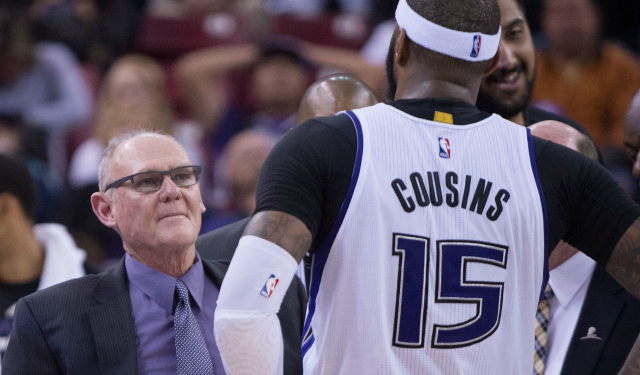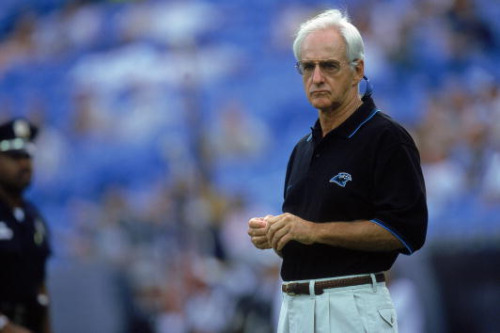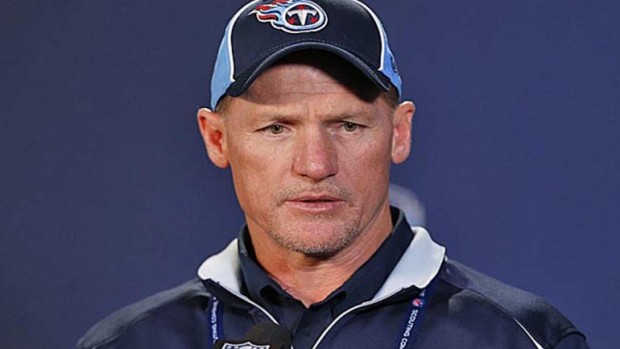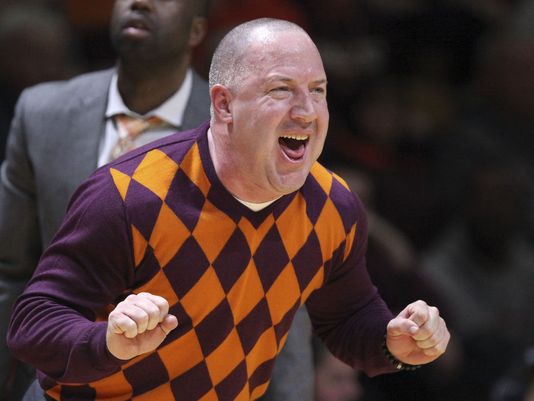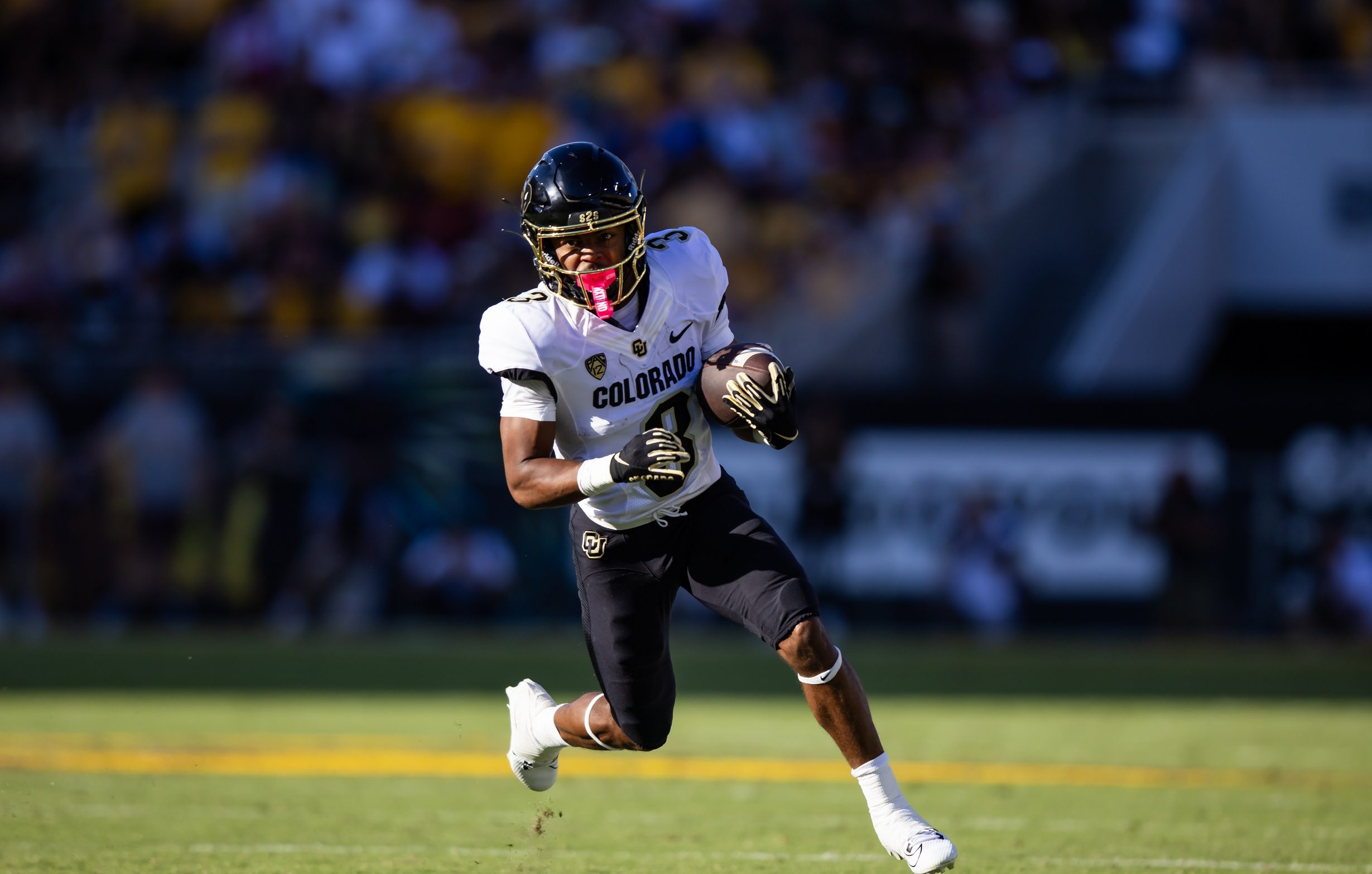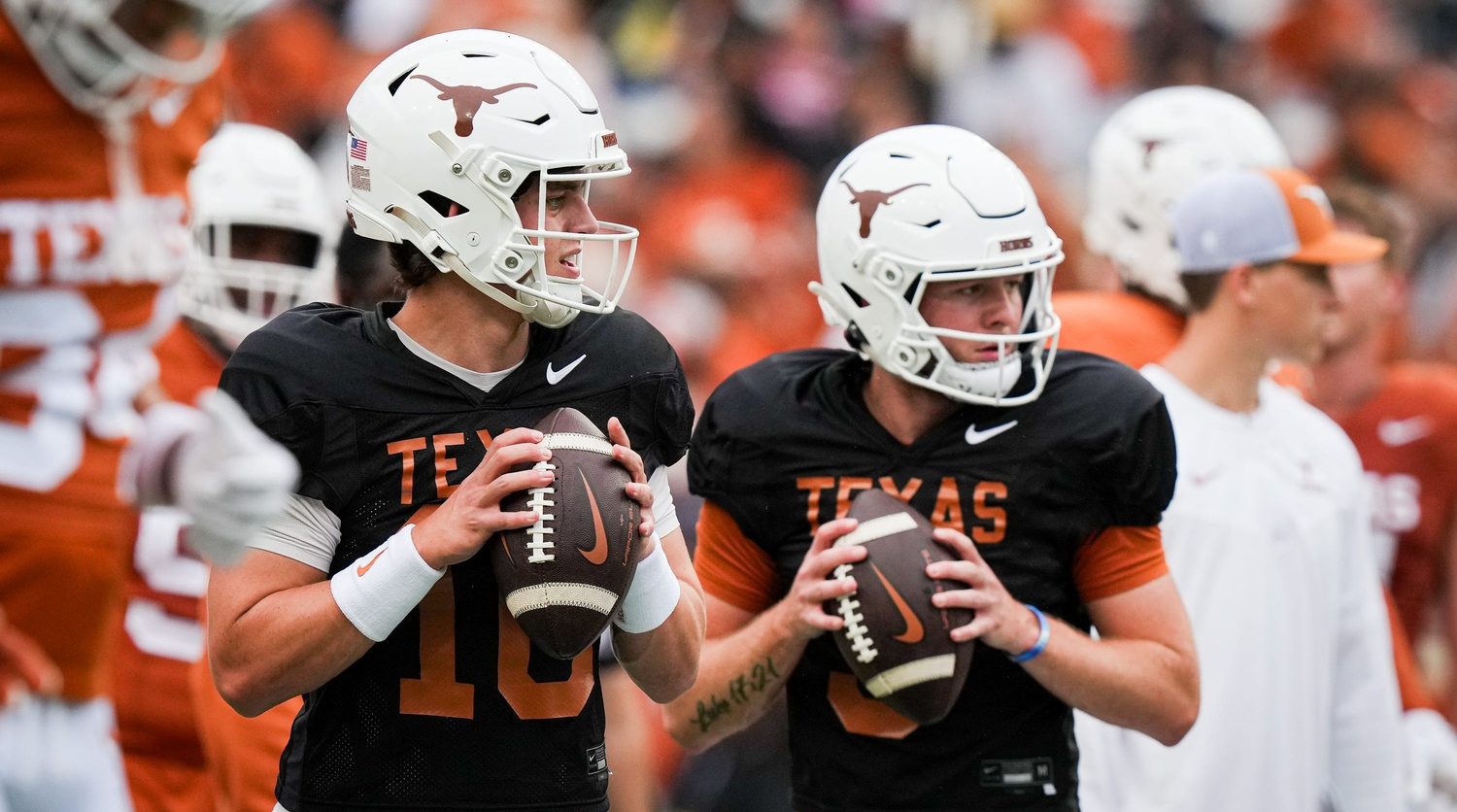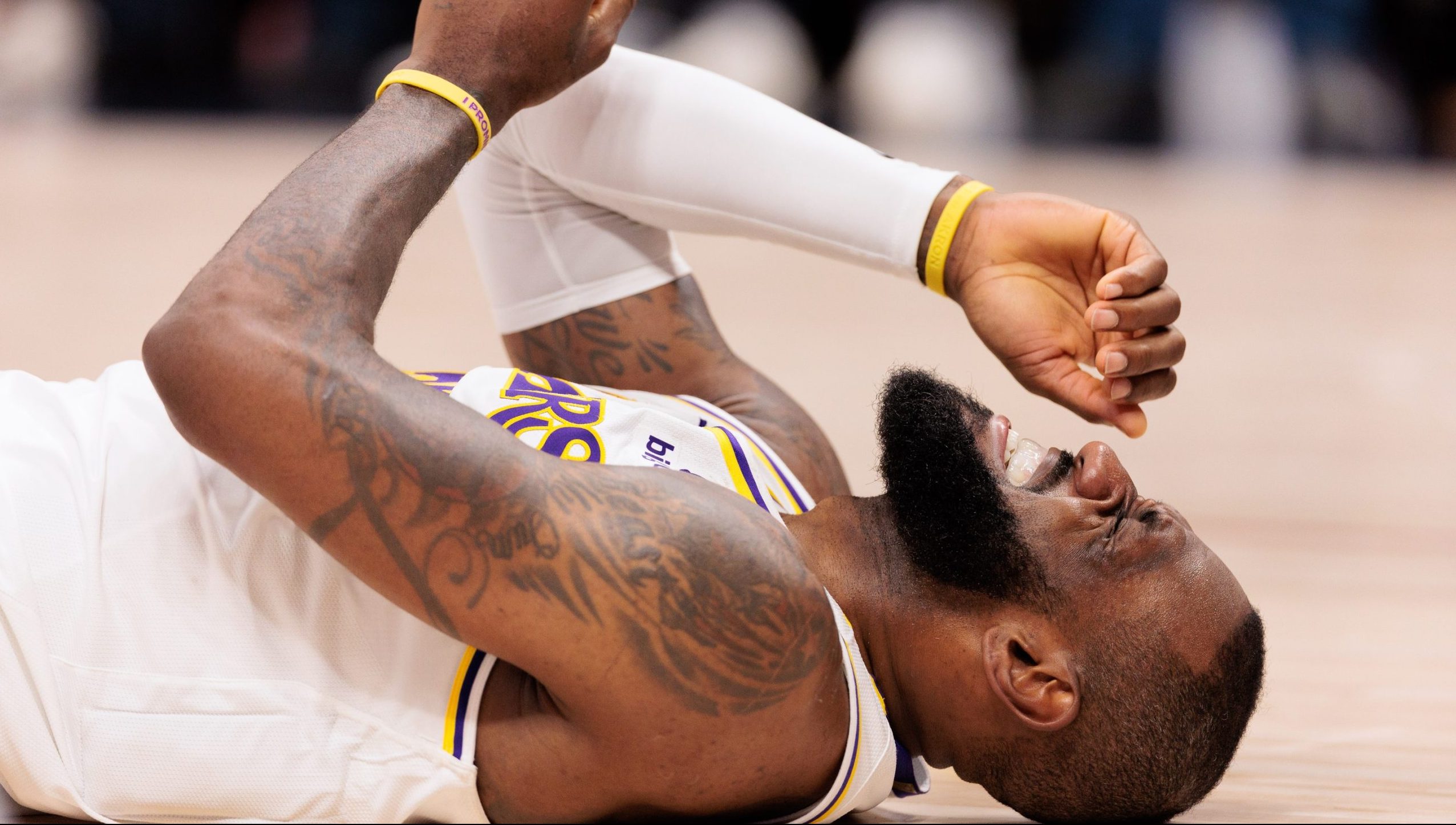Real estate agents and those who spend their time coaching major-league pitchers are kindred spirits, because they share this mantra: “Location, location, location.” They never said anything about relocation.
That’s probably because, in the course of coaching relocations, the coaches themselves typically move — or are moved — in predictable ways.
Coach A does well at that mid-major job in college basketball, so he gets a crack at a high-major gig. Coach B in the NFL fails to succeed with a marquee franchise, so he typically has to take a coordinator job somewhere else and re-establish himself as a coaching candidate. He might also go to the collegiate level as a head coach to satisfy a competitive urge, hoping he’ll get a fresh look from another NFL organization down the line.
Coaches generally find opportunities, and organizations find the ability to scoop them up when they see an opening. The marriage might not work out, but no one ever questions why the coach took the job in the first place.
Sometimes, though, we are left to wonder why certain coaches take certain jobs. During this time of year — when NBA and NHL coaches are being fired and hired, and when the college basketball carousel has completed a month of constant activity — it’s always fascinating to see how coaches react in the various circumstances which annually emerge in the industry.
Just exactly what do coaches think when they get fired? A current example: Sam Mitchell, formerly of the Minnesota Timberwolves. He’ll interview with the Sacramento Kings, a move which could be debated on both sides of the argument.
Next question: How do coaches react when they gain the chance to make an upward leap? Current example: Chris Beard, who succeeded at a mid-major in college basketball (Arkansas-Little Rock), pounced on the UNLV job… and then bolted for Texas Tech weeks later, when Tubby Smith’s move to Memphis provided a coaching carousel plot twist?
A third query: What goes through the minds of coaches when they obtain the opportunity to make a lateral move from a situation which has grown stale and possibly hostile? The best example from this month of coaching churn: Josh Pastner, who knew he was in trouble in Memphis and found his escape route to Atlanta, landing at Georgia Tech.
Getting inside the mind of a coach is never boring, and this one part of the business of sports becomes that much more engrossing when a coach makes a move which is hard for people on the outside to understand.
Here’s a great example from the late 1990s: George Seifert — winner of two Super Bowls with the San Francisco 49ers — relocated to Charlotte to coach the Carolina Panthers.
Perhaps in itself, the decision wasn’t unreasonable. The problem was that the 1996 Panthers — NFC runners-up — were no longer recognizable. The team was in rebuilding mode with an aging and almost-out-the-door Steve Beuerlein. The team which would become a Super Bowl contender (and in the 2003 season, a Super Bowl participant) also differed markedly from the one Seifert coached. Chris Weinke was shoved out of the picture. Jake Delhomme was a quarterback capable of leading the franchise forward.
Seifert’s years were lost years. Given that he had stood on the mountaintop — not once, but twice — one would have thought that a move to another team in position to win championships would have been the right play. Seifert naturally wanted to prove that he could win somewhere other than San Francisco, the city where he grew up. That instinct was natural. Wanting to do so with the resources he had in Carolina? That was the puzzling part of the equation.
During this decade, which coaching moves have short-circuited the brain, leaving us with no good answers as to why a qualified and competent coach chose a particular career path?
Two very brief notes before we continue:
First, these are not automatically bad moves, or moves which aren’t likely to work out for the coach involved. At least one of these moves is currently succeeding, and another one could eventually work.
Second, this is not a commentary on the school or professional team which hired the coach. That’s a very different equation. The worst hires by schools or pro teams don’t involve coaches who have achieved something. This is only about coaches who make highly unusual decisions with their careers.
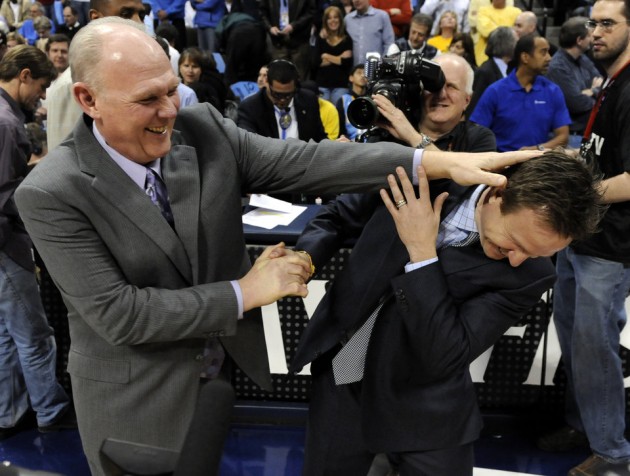
George Karl to the Sacramento Kings
See George Karl and Scott Brooks in the photo above? Karl — who led the Seattle Sonics to the 1996 NBA Finals — conceivably could have had a chance to succeed Brooks in Oklahoma City. He had to have known that coaching situation was tenuous in early 2015.
Yet Karl didn’t wait. He grabbed the open job in Sacramento at a point in time when owner Vivek Ranadive hadn’t yet tabbed Vlade Divac as his general manager. Karl knew Sacramento was a poorly-run organization. He had reached the Finals and, in the latter stages of his coaching career, could have made one more run at the title with OKC… for the organization which had once been the Sonics, the team which gave him his greatest professional satisfactions and achievements.
Why did Karl do this? It made no sense then, and it certainly makes no sense now.
Ken Whisenhunt to the Tennessee Titans
Ken Whisenhunt had coached in the Super Bowl, thanks to a veteran quarterback who knew what he was doing (Kurt Warner). If Whisenhunt wanted a second NFL head coaching job, it should have been with a veteran quarterback who needed polishing in an offense which had a chance to take off. This was Matthew Stafford in Detroit with Calvin Johnson. It wasn’t an injury-prone Jake Locker in Nashville.
Whisenhunt interviewed with the Titans and agreed to become their head coach before the Lions had a chance at him.
Yes, the move was a disaster, but the decision is a weird one because Whisenhunt had already tasted the Super Bowl as a head coach. Surely, he should have insisted on taking a job in which he had a chance to win right away.
Gary Andersen to Oregon State (from Wisconsin)
Here’s the truly baffling part about this extremely bizarre coaching odyssey: Gary Andersen’s departure from Utah State — and subsequent arrival in Madison with the Wisconsin Badgers — was prolonged and messy. Andersen did not handle that situation with great finesse or skill. In late 2012, he flatly told reporters on multiple occasions that he was staying at Utah State. He went out of his way to emphasize how much he enjoyed quality of life over the siren song of coaching at a Power 5 school.
Blah, blah, blah. Andersen was full of bullspit. He stealthily took the Wisconsin job, and even though he personally communicated with each Utah State player afterward, he still stabbed the program in the back. Andersen undercut his credibility to take the Wisconsin job.
Two years later — and after doing a pretty darn good job, too (19 wins, a Big Ten West Division title) — he was gone. Andersen was once again less than fully forthcoming in and around the process of moving from one job to another. He cited family as the reason for wanting to move back to the West and Oregon State. However, in the course of time, it became clear that Wisconsin’s admission standards represented the true reason for his departure.
Andersen had his reasons, but really — if you moved heaven and earth (and lied to the press) to take a Big Ten job, would some on-the-job challenges be enough to make you want to leave after two (mostly successful) seasons? It still doesn’t make sense today.
Lionel Hollins to the Brooklyn Nets
Hollins had taken the Memphis Grizzlies to their first-ever Western Conference Finals. He took a journey with talented veteran players and an organization that knew exactly what it was doing… even though that same organization did not renew Hollins’s contract after that West Finals appearance.
If Hollins wanted another NBA job, shouldn’t he have wanted an organization which was likely to: A) contend, and B) exhibit patience with him? Of all the organizations in the league with a coaching vacancy at the time, the Brooklyn Nets were the last one which figured to check either of those two boxes.
The Nets had exposed themselves under owner Mikhail Prokhorov as a foolishly greedy win-now team. Prokhorov and general manager Billy King chased older veterans at the ends of their careers, with resource-draining expenditures that gave the organization very little room in which to maneuver. To be a little more precise about the matter, the acquisition of so many veterans near the end of the line made it important for the coach to win instantly… without having a really good chance to contend. It was a disaster.
Hollins wanted it anyway. Earlier this year, he was fired.
Can’t say we didn’t warn ya, Lionel.
Buzz Williams to Virginia Tech (from Marquette)
This is the move on the list which is already in the process of working out, a reminder that curious moves aren’t always unsuccessful ones.
(Honorable mention, just to duck it into this piece: Scott Nagy coached South Dakota State for 21 seasons, and at age 49, he felt it was time for a change. Power 5 school or maybe an Atlantic 10 school, right? Nope. Wright State. That’s one of the most head-scratching moves one can possibly imagine.)
Buzz Williams was crushing it at Marquette, a program with a rich basketball heritage, thanks to the iconic Al McGuire and one of his former assistants, a man named Rick Majerus. You remember Majerus — he led Utah to the 1998 national championship game and was a wizard at Saint Louis, the program he revived before he died at the much-too-early age of 64 in 2012. Majerus had coached at Marquette in the 1980s, and while the program wasn’t a goliath every year, it continued to make its presence known in college hoops. A Sweet 16 appearance in 1994 kept the program on the national radar, and in 2003, a man named Dwyane Wade — ever heard of him? — led the Golden Eagles to the Final Four. Situated in the full-size Big East before it was cut down, Marquette had a lot going for it as a program.
Even though he knew Marquette would soon compete in a smaller Big East without Syracuse, UConn and Louisville, Buzz Williams still had to know that he could do big things in Milwaukee. Just consider the fact that Villanova — from the smaller Big East — just won the national title. Marquette certainly could have become that program under Buzz.
The Golden Eagles made the Sweet 16 or better in three straight seasons (2011-2013), reaching the Elite Eight in 2013. Buzz put himself within shouting distance of the Final Four on a regular basis, at a program which (historically) had mattered in college hoops.
He left for Virginia Tech, a program which has never made a Final Four, and whose only season of considerable consequence came in 1967. In that year, Virginia Tech made its only Sweet 16 and Elite Eight appearance; 1967 also marks the only year in which the Hokies won more than one game in the same NCAA tournament. They’ve never been able to duplicate that feat in the subsequent half of a century.
Marquette to Virginia Tech. It never made linear sense. That said, Buzz will probably make the Sweet 16 in Blacksburg before too long.

